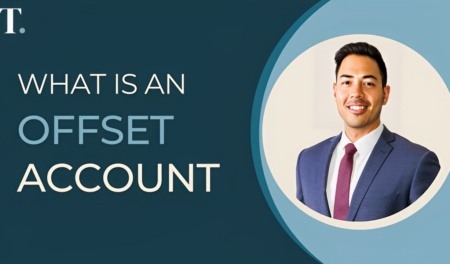FAQs
Got a burning question? Check our most frequently asked questions below.

FAQs
A mortgage broker acts as the intermediary (or the middleman) between the borrower and the lender, using their knowledge and software to source competitive rates and facilitate a smooth process to settlement. Mortgage brokers represent the borrower, acting in their best interests at all times to find the best lender to suit the borrower’s financial situation and needs. They handle all the steps throughout the borrowing process and report back to the borrower at various stages.
There are a wide range of mortgage products out there and it can be confusing to try and compare them all. A mortgage broker will help navigate the options by explaining the differences between products. They will eventually help the borrower choose a loan that suits their specific needs. Once a product is chosen, a mortgage broker will help the borrower navigate the process, ensuring that the borrower is fully informed every step of the way.
A mortgage broker can potentially save borrowers time and money by streamlining the borrowing process and finding the most suitable lenders for their clients.
We have been working in Sydney, Newcastle, and all across Australia for over 25 years. In that time, we have carefully developed our systems and processes to make sure our clients get the best possible outcome and service along the way. Today, what sets us apart is our focus on personalised service and tailored solutions that suit each client’s requirements. You only need to read the reviews left by our clients over the years to see the evidence of our unmatched dedication.
We do not charge a fee for our service. We are paid a commission by the lender you choose which is fully disclosed to you at the outset (government and lender fees and charges apply). Initially, your mortgage broker provides you with our Credit Guide, which outlines how we are remunerated generally. When you choose us to arrange your finance, we will provide our Credit Proposal Disclosure document which details the specific sum your lender will pay us after the settlement of the loan. Our advice is based on what is best for our clients. It is our absolute priority that our clients are satisfied with our service, as we rely on client reviews and referrals to sustain our business.
Track Financial starts by asking you to take 10 or 15 mins to complete our responsible lending questionnaire. Our questionnaire will provide your broker with all the information they need to start working on a plan that is aligned with your needs and objectives.
Your broker will then tee up a time to go through the basics with you and share reports with you, which outline the current interest rates and monthly repayments for your proposed mortgage.
In that meeting, your broker will outline the differences between various types of home loan products, such as fixed versus variable rates or basic loans versus various packages. They will also discuss the pros and cons of choosing smaller lenders over bigger banks.
Your Track Financial broker will also talk to you about lender rules around different types of properties, such as small inner-city units or converted warehouses and large acreage. They will also offer free RP Data property reports on any place you are considering, to give you valuable insight into that property, including recent comparable sales and an estimate of the value today.
They will also explain the process involved in full, describing every single step you will take on your journey, not just in applying for a mortgage. Your broker will explain how to make offers, what conditions to place on the contract, how long to set a finance clause, and how to decide on a settlement date.
After your first appointment with Track Financial, you’ll feel glad you chose to engage a mortgage broker. We look forward to helping you buy a property or get a competitive rate.
After your loan has settled, Track Financial doesn’t forget you. We are paid an ongoing trailing commission by the lender you chose to continue to be available for you to answer any questions and perform modifications to your loan such as fixing or switching products.
Each year your broker will also review your loan to make sure it still suits your needs. We will also compare it with those on offer from other institutions and negotiate with your current lender for you, to see if we can secure a better rate from them for you.
A First Home Buyer needs to save at least a 5% deposit* but, the more that is contributed now, the less interest is charged in the long run and the lower the repayments will be.
If the initial deposit is less than 20% + any stamp duties, lenders mortgage insurance may apply (explained further down the page). If you are purchasing a subsequent home or refinancing, it is likely you will have more equity so we recommend you put down at least 20% + the costs.
*It is possible, with the help of a Parental Guarantee, to avoid paying lenders mortgage insurance, there is a section on that below also.
Track Financial charges no fees. However, you will likely pay Lender and Government fees in the course of arranging and settling your mortgage.
In a property purchase, common Government charges are Stamp duty, Land Transfer Registration, Registration and Discharge Registration.
You may also pay a loan application fee or lender legal charge, although it is your broker’s role to keep those to a minimum! You will also have to allow for Conveyancing and Council Rates / Body Corporate fees.
When refinancing you don’t need a conveyancer and there’s no Stamp Duty or Land Transfer Registration so would only pay Registration and Discharge Registration plus any Lender fees, if applicable.
As part of our service, we will outline any fees and charges you need to pay and clearly communicate this to you so you can be fully prepared.
A pre-approval is confirmation from the lender they are happy with the scenario your broker has prepared and submitted, providing their conditions are met. This pre-approval may be required for you to make a formal offer when purchasing a new home.
There may be specific conditions requested by your chosen lender, but there are some that are standard as follows:
- A satisfactory valuation result
- An employment check
- Formal acceptance from the mortgage insurer (if applicable)
A pre-approval usually lasts for 90 days, at which time your broker will be in touch to renew your pre-approval if you haven’t made a purchase in that time.
When you sign a contract to buy, your broker converts the lender’s pre-approval to full approval. They will collect a copy of the fully signed contract and Section 32 which is then sent to the lender. A valuation of the property is often ordered.
Once the valuation has been accepted and all other conditions are met, the lender issues an unconditional approval and a formal loan offer for signing. Another appointment is scheduled so that your broker can fully explain the loan offer, and you can sign it.
Within three to four days of receipt of the signed loan offer, the lender moves your file to their settlements area. This team liaises directly with your conveyancer to book a settlement time on the agreed day.
After you sign the contract, the lender moves your file to their settlements area. This team liaises directly with your conveyancer to book a settlement time on the agreed day.
A week or so before settlement, your conveyancer calculates the precise amount of council rates and water rates and lets you know the exact shortfall you need to contribute. This sum can be paid by way of a bank cheque or transfer from your account. Your conveyancer should have arranged everything with you in advance, but they will contact you prior to settlement if there is any outstanding balance that needs to be settled.
On settlement day, the conveyancer liaises with the lender on your behalf and arranges to transfer ownership of the property into your name. All you have to do is collect the keys from the agent!
Lenders mortgage insurance (or LMI) is usually required when a lender provides a loan that covers more than 80% of the purchase price or valuation, whichever is the lower. It is designed to cover the lender for their risk and protects them in the event that the property needs to be sold.
If the lender suffers a loss on the sale, they claim payment from the mortgage insurance company. The insurer then pursues the borrower for the amount they paid the lender. The insurance offers the borrower no protection whatsoever and is a once-off charge which can be added to the loan amount in certain circumstances. The price of the premium depends on the loan to value ratio of the property purchased.
A parent* is able to help their children avoid the cost of lenders’ mortgage insurance by offering a portion of their home equity to reduce the risk for the lender. The standard comfort zone is where your loan does not exceed 80% of the property value so your deposit is combined with equity in the parent’s home or investment property. Your broker will explain how it all works and ensure that you understand the implications of using a guarantor.
*Mum and Dad must seek independent legal advice to have their rights and responsibilities as guarantors explained to them fully.
"*" indicates required fields
Track Financial is an independent company passionate about providing simple, elegant financial solutions. We’re all about offering personalised financial services that actually work for your lifestyle.
Select your desired option below to share a direct link to this page.
Your friends or family will thank you later.




